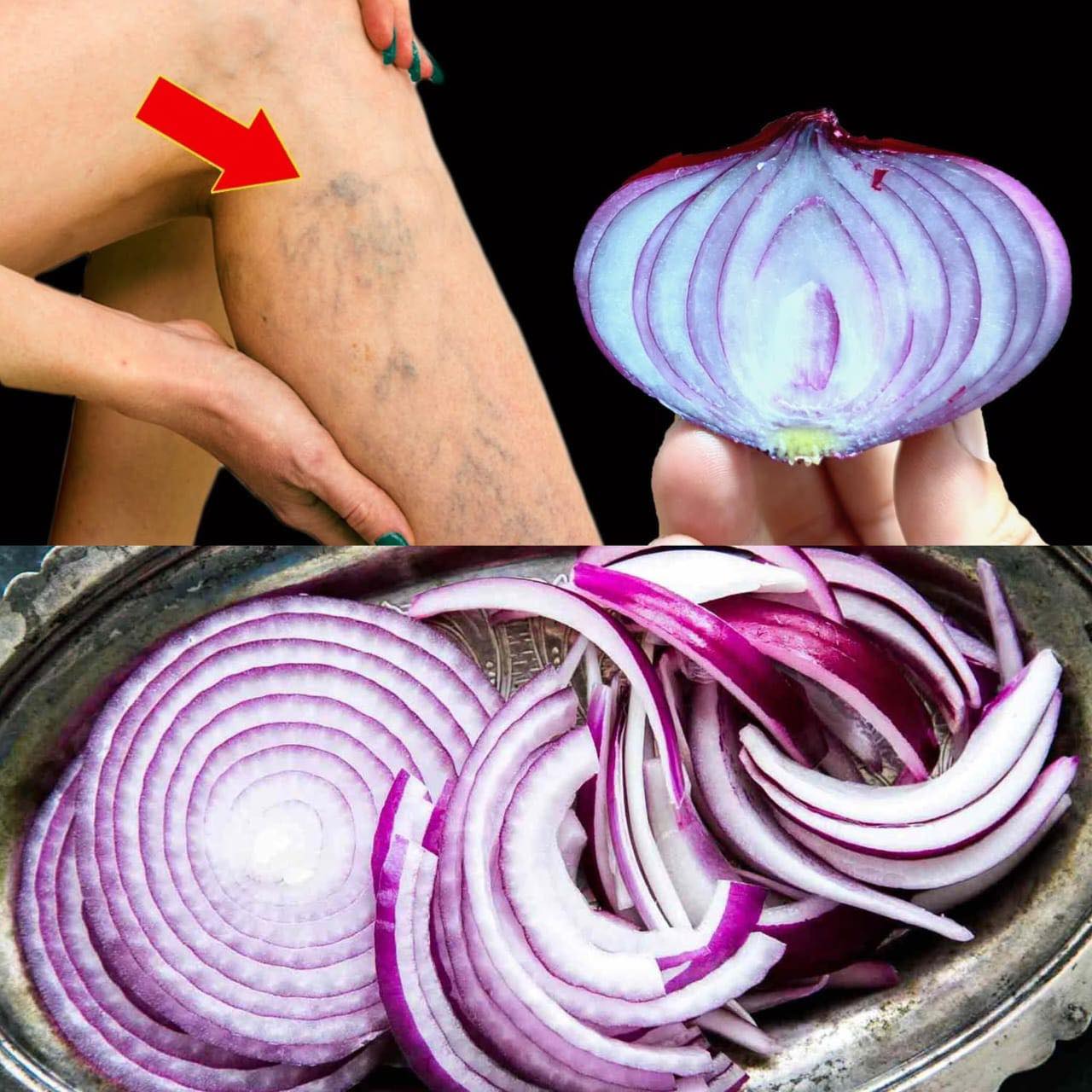Is Red Onion the Secret to Vanishing Varicose Veins?
Varicose veins – those bulging, twisted veins that often appear on our legs – are a common problem. While many treatments exist, from compression socks to laser therapy, some people are turning to a surprising, natural remedy: red onion. But can a humble red onion really erase varicose veins like an eraser? Let’s dive into the science and explore the potential benefits.
 Understanding Varicose Veins
Understanding Varicose Veins
Before we explore the potential of red onion, let’s quickly recap what varicose veins are and why they occur. Varicose veins develop when the valves inside your veins weaken or become damaged. These valves normally ensure blood flows in one direction, back towards the heart. When they fail, blood can pool in the veins, causing them to swell and become visible.
Symptoms can include:
- Aching or heavy legs
- Swelling in the ankles and feet
- Burning or throbbing in the legs
- Itchy skin around the affected veins
Traditional treatments often involve medical procedures. However, many people are interested in exploring natural approaches for relief or prevention.
 Red Onion: The Claimed Varicose Vein Fighter
Red Onion: The Claimed Varicose Vein Fighter
The idea that red onion can help with varicose veins stems from its rich nutritional profile, particularly its high concentration of certain compounds. Let’s break down the key elements:
Quercetin: A Powerful Antioxidant
Red onions are packed with quercetin, a flavonoid known for its antioxidant and anti-inflammatory properties. Antioxidants help protect cells from damage caused by free radicals. Inflammation can contribute to the development and worsening of varicose veins. Quercetin *may* help by:
- Reducing inflammation in the affected veins
- Strengthening vein walls, promoting better circulation
- Protecting against oxidative stress, which can damage vein tissues
It’s important to note that while quercetin has shown promise in lab studies, more research is needed specifically on its effects on varicose veins in humans. National Institutes of Health is a good place to find scientific studies.

Sulfur Compounds and Circulation
Red onions, like other members of the allium family (garlic, shallots), contain sulfur compounds. These compounds are thought to improve blood circulation. Good circulation is crucial for preventing blood pooling and reducing pressure on the veins. While the direct link between onion sulfur compounds and varicose vein reduction requires further investigation, improved circulation is generally beneficial for vascular health.

Vitamin C: Collagen Support
Vitamin C is essential for collagen production. Collagen is a protein that provides structure and elasticity to blood vessels. Adequate vitamin C intake can help strengthen vein walls and improve their overall function. Red onions contain a moderate amount of Vitamin C, contributing to the body’s ability to produce and maintain healthy collagen.
 How to Use Red Onion for Varicose Veins (The Proposed Methods)
How to Use Red Onion for Varicose Veins (The Proposed Methods)
While scientific evidence directly supporting red onion as a “varicose vein eraser” is limited, proponents suggest the following methods:
- Topical Application: Some recommend applying a paste made from blended red onion directly to the affected veins. The idea is that the beneficial compounds will be absorbed through the skin. However, be cautious, as onion can irritate sensitive skin. A patch test is always recommended.
- Dietary Inclusion: Incorporating red onion into your diet can increase your intake of quercetin, sulfur compounds, and vitamin C. This can contribute to overall vascular health.
- Red Onion Juice: Drinking diluted red onion juice is another suggested method. Again, moderation is key, as concentrated onion juice can be harsh on the digestive system.
Remember, these are anecdotal suggestions and should not replace medical advice.
 Important Considerations and Precautions
Important Considerations and Precautions
* Skin Sensitivity: Red onion can cause skin irritation or allergic reactions in some individuals. Always perform a patch test before applying it extensively to your skin.
* Drug Interactions: If you are taking any medications, especially blood thinners, consult your doctor before using red onion as a treatment, as it may interact with certain drugs.
* Not a Cure: It’s crucial to understand that red onion is not a proven cure for varicose veins. It may offer some relief or support overall vascular health, but it cannot replace medical treatments if necessary.
* Consult a Doctor: Always consult with a healthcare professional or vascular specialist for an accurate diagnosis and appropriate treatment plan for varicose veins. They can assess your condition and recommend the best course of action.
 Conclusion: The Verdict on Red Onion and Varicose Veins
Conclusion: The Verdict on Red Onion and Varicose Veins
While the idea of a “varicose vein killer” red onion sounds appealing, it’s essential to approach this claim with caution. While red onions contain compounds that *may* support vascular health, more research is needed to confirm their effectiveness specifically for treating varicose veins. Eating red onion as part of a healthy diet is a good idea, and it *might* help, but don’t expect a complete cure. Always consult with your doctor for proper diagnosis and treatment. A healthy diet, regular exercise, and doctor-approved treatments remain the most reliable approaches to managing varicose veins.
